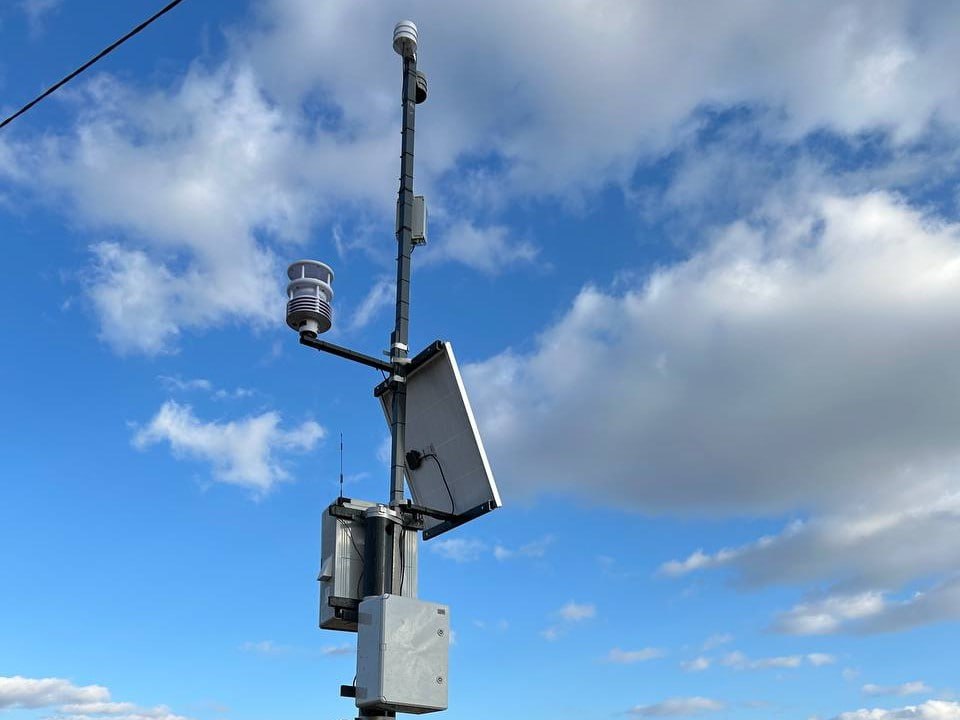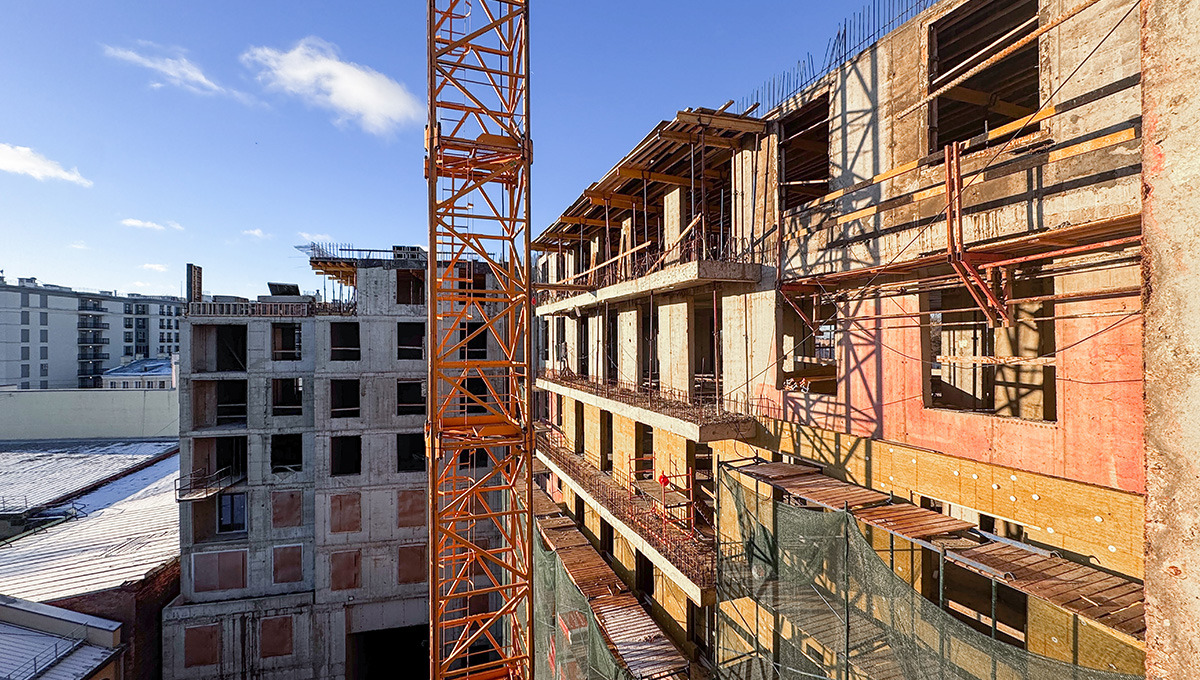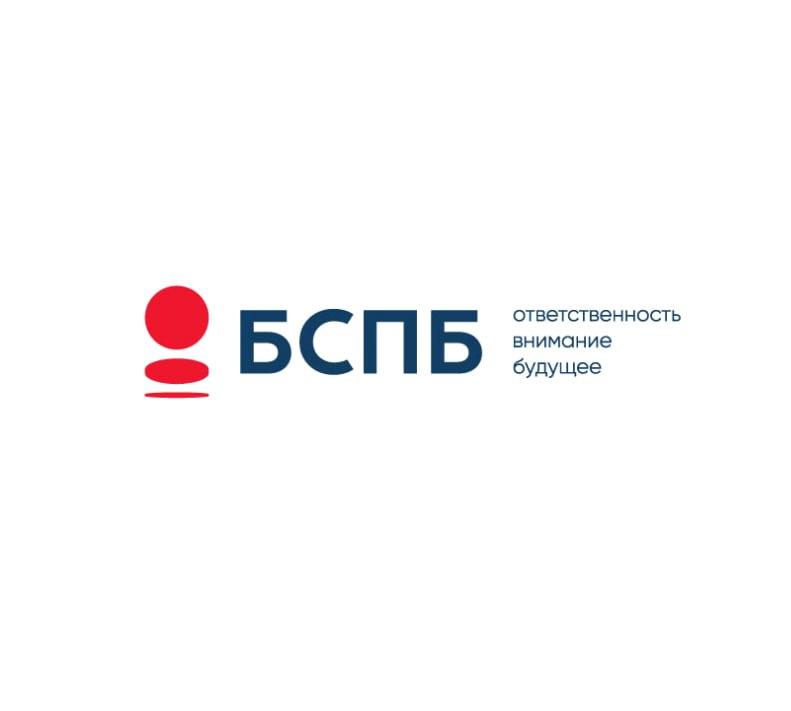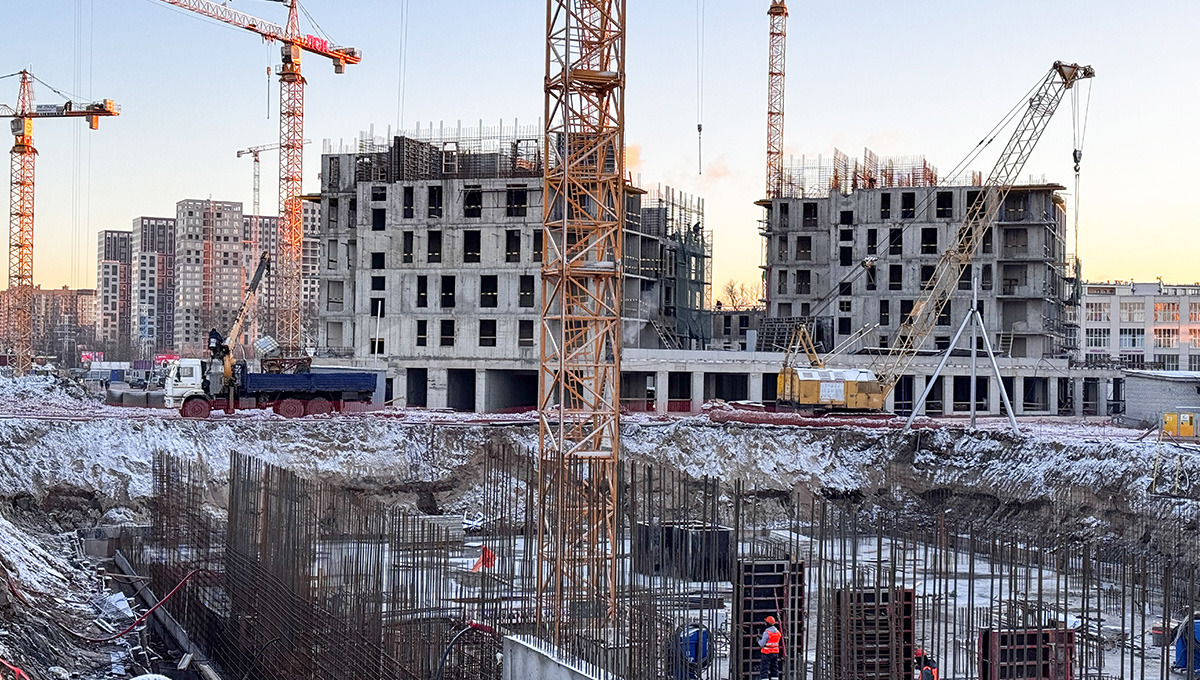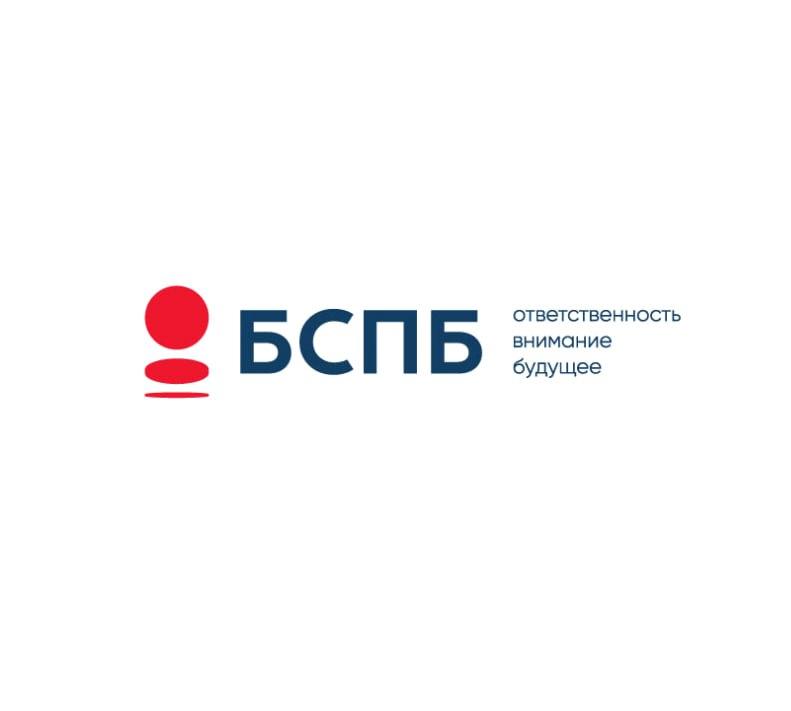Еврокомиссия опубликовала перечень совместных шагов к безвизовому режиму "Россия - ЕС".
Текст соглашения - на английском языке - доступен на портале Еврокомиссии.
В первом пункте сообщается о том, что биопаспорта должны соответствовать стандартам ICAO. (международный стандарт паспортов, который утверждает Международная организация гражданской авиации (ИКАО от англ. ICAO — International Civil Aviation Organization)
"Фонтанка.fi" предлагает вам ознакомиться с текстом соглашения о совместных шагах на английском языке:
COMMON STEPS
TOWARDS VISA FREE SHORT-TERM TRAVEL
OF RUSSIAN AND EU CITIZENS
(RUSSIA-EU VISA DIALOGUE)
GENERAL FRAMEWORK
The European Union and the Russian Federation reiterate their international commitments
related to the movement of and people-to-people contacts among their citizens, while
considering possibilities for the reciprocal abolition of visas on the basis of a relevant agreement.
Such a Russia-EU visa waiver agreement will be limited to holders of biometric passports issued
in accordance with ICAO standards.
The EU and Russia pursue a common goal towards visa free short-term travel of their citizens.
The EU and Russia agreed to "examine the conditions for visa-free travel as a long term
perspective" at the EU-Russia Summit in May 2003 and to "continue and intensify the visa
dialogue at expert and political level" in the Road Map for the Common Space of Freedom,
Security and Justice adopted in May 2005. In 2006 they concluded a visa facilitation agreement
and are currently working on amendments to further ease visa procedures. In 2010 Russia
produced a draft agreement on waiver of visa requirements for Russian and EU citizens.
The EU-Russia Permanent Partnership Council (PPC) on Freedom, Security and Justice in April
2007 agreed on the procedure (Terms of Reference) for the visa dialogue, which was endorsed
by the EU-Russia Summit in May 2007. Accordingly, this dialogue is led within four
blocks/areas (1. document security, including biometrics; 2. illegal migration, including
readmission; 3. public order and security; 4. external relations).
The first stage of the dialogue focused on the mutual exchange of information on the respective
state of play of both parties in all the relevant policy areas under all 4 blocks. To this end, expert
meetings were convened for each block: a first round was held between December 2007 and
June 2009; a second round of expert meetings took place in March 2010. The experts reported to
Senior Officials overseeing the dialogue.
The end of the exploratory phase of the dialogue was marked by the 26-27 May 2010 PPC on
Freedom, Security and Justice where both sides tasked the Senior Officials to convene to discuss
how to move to a practical phase of the dialogue and to report back to the next PPC.
Thereafter, a common methodology for the practical phase of the dialogue was agreed by the
Senior Officials (24 September and 18 November 2010) and endorsed by the PPC on Freedom,
Security and Justice on 18-19 November 2010. That methodology consists of joint elaboration of
an exhaustive list of common steps to be agreed by the Parties and implemented by the EU and
its Member States and the Russian Federation.
The present document specifies the list of common steps and operational measures jointly
elaborated and adopted by both Parties on 15 December 2011 in Brussels, to be implemented by
both Parties before moving to the next phase.
In case of substantial change of the current situation, Russia or EU could propose a review and
adaptation of the Common steps and operational measures, which would need to be mutually
agreed.
The Parties agreed that EU and its Member States on the one side, and Russia on the other side,
acting on an equal footing and within their respective competences, shall implement the
following:
Block 1: Document security, including biometrics
Introduce ICAO-compliant biometric passports on the basis of a comprehensive and
secure identity management, taking into account work carried out in the ICAO
framework and adequate protection of personal data and ensure their authenticity,
facilitate accurate verification of identity of their holders by relevant authorities of both
Parties.
Ensure prompt and systematic reporting to the Interpol database on lost and stolen
passports.
Maintain regular exchange of passport specimens and visa forms, information on false
documents and cooperation on document security.
Conduct training programs on the methods of the document protection, on the basis of
ICAO standards, inter alia on introduction of biometric parameters, as well as exchange
of information on the methods and respective possible scientific researches in the field.
Operational measures
Undertake and if necessary improve anti-corruption measures, including ethical norms,
targeting officials of any public authority that deals with comprehensive and secure
identity management.
Block 2: Illegal migration, including readmission
2.1. Migration issues
Conclude between Russia and all the relevant EU Member States the implementing
protocols to the Agreement between the Russian Federation and the European
Community on Readmission of 25 May 2006, while ensuring effective implementation of
this Agreement.
Effectively implement the Agreement between the Russian Federation and the European
Community on the Facilitation of the Issuance of Visas to the Citizens of the Russian
Federation and the European Union of 25 May 2006.
Amend the above mentioned visa facilitation agreement in order to further simplify visa
requirements for the short-term travels.
Work to ensure facilitation, further simplification and transparent application of the
respective rules on registration/listing of citizens legally staying on the other Party's
territory, on issuance of permits to legally stay/reside and exercise labour activity, aiming
to reduce in practice the length of administrative procedures and burden for citizens; and
regularly exchange information on respective visa policies.
Operational measures
? Exchange information, including within the Russia-EU Dialogue on Migration, on a legal
framework, as well as on administrative structures, including their respective
competences and working methods, and on infrastructure (including detention centres)
for effective general migration management, in particular for effective elaboration of
methodology on inland detection and expulsion of illegal migrants, as well as the current
flows, statistics and risk analysis of illegal migration and closely cooperate in the fight
against crimes, connected to the illegal migration, and addressing possible deficiencies.
2.2. Asylum issues
? Establish clear and transparent asylum procedures effectively accessible for persons
seeking asylum.
? Closely cooperate, within the Russia-EU Dialogue on Migration, on the asylum related
issues.
? Ensure proper status, including rights and duties, for persons recognized to be in need of
international protection in accordance with the Parties’ obligations under international
law, including under the 1951 Convention relating to the status of refugees and the 1967
Protocol relating to the status of refugees.
Operational measures
? Exchange information on respective administrative structures competent for treatment of
asylum cases, including on reception facilities for asylum seekers, and addressing
possible deficiencies.
? Develop a comprehensive exchange of information on their respective policies towards
integration and adaptation of recognized refugees and persons granted international
protection, and addressing possible deficiencies.
2.3. Border management issues
? Optimise the appropriate working mechanism for closer cooperation and more intensive
contacts and information exchange between the Russian and EU Member States’ border
services, in particular at state border crossing points and effectively implement the
working arrangement between the European Agency for the Management of Operational
Cooperation at the External Borders of the Member States of the EU ("FRONTEX") and
the Border Guards Service of the Federal Security Service of the Russian Federation.
? Undertake necessary steps in order to develop cooperation between the Federal Agency
for the Development of the State Border Facilities of the Russian Federation
(Rosgranitsa) and the European Agency for the Management of Operational Cooperation
at the External Borders of the Member States of the EU ("FRONTEX").
? Deploy appropriate staff, resources, technical equipment and infrastructure at the relevant
parts of the state border, as well as effectively implement border control procedures and
best practices at their common state border crossing points to ensure secure environment
for the movement across the borders between the EU and the Russian Federation, while
fighting cross-border crime, improve efficiency of controls of that movement and make
common border crossing less strenuous and reduce the waiting time
Operational measures
? Exchange information on their appropriate border-related administrative structures,
maintain cooperation between their border services, law enforcement and other
competent agencies and address possible deficiencies.
? Develop a data gathering and analysing system allowing to carry out regular risk analysis
for border management.
? Pursue set of measures for prevention and suppression of the document fraud and their
use for the border crossing, inter alia by training of law-enforcement, border and customs
agencies staff.
? Conduct training programmes and implement anti-corruption measures, including ethical
norms, specifically targeting officials of state border-related structures, and addressing
possible deficiencies.
Block 3: Public order, security and judicial cooperation
3.1. Fight against transnational organized crime, terrorism and corruption
? Follow relevant international standards in the fight against money laundering and
terrorism financing, in particular effectively fulfill relevant Financial Action Task Force
on Money Laundering (FATF) recommendations.
? Further enhance exchange of information and cooperation between relevant agencies of
both Parties to effectively combat trafficking in illicit narcotic drugs, psychotropic
substances and their precursors, and effectively implement the working arrangement
between the European Monitoring Center for Drugs and Drug Addiction (EMCDDA) and
relevant agencies of the Russian Federation.
? Exchange information on respective strategies and laws to fight trafficking in human
beings including to protect its victims, in accordance with the Parties’ obligations under
the UN Convention against Transnational Organized Crime and its Protocol on
Trafficking in Human Beings and addressing possible deficiencies.
? Ensure exchange of information and cooperation between relevant agencies of both
Parties to effectively combat terrorism and trafficking in firearms and other serious
transnational crimes, in accordance with applicable international law and legislation of
the Parties.
Operational measures
? Exchange information on respective strategies and laws to fight and to prevent
corruption, including within the public sector, and address possible deficiencies.
? Cooperate under the 1994 EU-Russia Partnership and Cooperation Agreement on the
prevention of corruption.
? Follow relevant recommendations of Group of States Against Corruption (GRECO).
3.2. Law enforcement cooperation
? Undertake necessary steps for conclusion and effective implementation of a strategic and
operational cooperation agreement between Europol and the Russian Federation.
Operational measures
? Exchange information on relevant reforms of the law enforcement agencies to ensure
their high level of capacity in, and enhance cooperation of the Parties aimed at,
prevention, detection, suppression and solution of crimes, including in fight against
transnational organized crime, and address possible deficiencies.
? Strengthen bilateral and multilateral operational cooperation between law enforcement
agencies and judicial authorities of EU Member States and Russia in order to fight
transnational organized crime.
? Conduct joint operations and use other operational means and methods of cross-border
law enforcement cooperation between Russia, EU and its relevant agencies and interested
Member States for relevant cases.
3.3. Judicial cooperation
? Undertake necessary steps for conclusion and effective implementation of a cooperation
agreement between Eurojust and the Russian Federation.
? Accede to and implement the 1980 Convention on Civil Aspects of International Child
Abduction and the 1996 Convention on Jurisdiction, Applicable Law, Recognition,
Enforcement and Cooperation in respect of Parental Responsibilities and Measures for
the Protection of Children.
Operational measures
? Exchange relevant information on implementation and effectiveness of extradition
procedures, mutual legal assistance requests, execution of foreign courts decisions,
transfer of sentenced persons, including statistics, strengthen cooperation and address
possible deficiencies.
3.4 Personal Data
? Accede to and implement the 1981 Council of Europe Convention for the Protection of
Individuals with regard to Automatic Processing of Personal Data and its 2001
Additional Protocol regarding supervisory authorities and transborder data flows.
Block 4: External relations
? Ensure that all Russian and EU citizens and legally residing persons (regardless of the
length of their authorised stay) can travel on equal basis with the Parties’ own citizens
within their respective territories, subject to their internal rules and regulations
concerning national security.
? Ensure full-fledged and effective issuance of travel and identity documents, including
with regard to their price and deadlines of procedures, to all categories of persons for
example to all citizens, internally displaced persons, refugees, non-citizens and stateless
persons including to persons belonging to minorities.
? Conduct training programs for law enforcement officials, prosecutors, judges and other
practitioners in the areas covered by the present Block, and address possible deficiencies.
Operational measures
? Discuss and cooperate on relevant recommendations of UN bodies, OSCE, the Council of
Europe and international human rights organizations in the areas of the freedom of
movement and facilitation of people-to-people contacts.
? Discuss and cooperate on specific recommendations of UN bodies, OSCE, the Council of
Europe and international human rights organizations in implementing anti-discrimination
policies, protecting persons belonging to minorities and combating hate crimes.
? Discuss and cooperate on the applicable Council of Europe conventions, including the
1950 Convention for the Protection of Human Rights and Fundamental Freedoms, in the
areas covered by the Common Steps.
FINAL PROVISIONS
These Common Steps and operational measures are implemented in parallel way and on the
basis of equality by relevant authorities of the EU and its Member States and Russia, taking into
account the current state of their implementation. They, as well as the visa dialogue, are carried
out on the EU side in accordance with the Treaty on European Union and the Treaty on the
Functioning of the European Union, and on the Russian side in accordance with the national
legislation.
The progress of implementation is assessed on a regular basis by the Senior Officials and
reported to the PPC on Freedom, Security and Justice and reviewed at the Russia-EU Summits.
Once the implementation of the "Common Steps towards Visa Free Short Term Travel of
Russian and EU Citizens" is completed, the Parties will decide, in accordance with their
respective internal procedures, on starting negotiations on an EU-Russia visa waiver agreement.
While considering the implementation of the Common Steps and operational measures as a selfstanding
and reciprocal process, Russia and EU will continue to focus on an effective
implementation of the Russia-EU visa facilitation and readmission agreements, considering them
as important factors for the overall assessment of the Russia-EU visa dialogue.
The links among the evolution of migratory flows and the protection of human rights and
fundamental freedoms as well as the respect of rule of law shall also be taken into account.
The evolution and assessment of the following issues will be also taken into account:
? Rate of visa applications refusals;
? Rate of readmission applications accepted and effective returns under the Russia -EU
readmission agreement;
? Number of return decisions with regard to citizens of the Parties, illegally staying or
residing on the territory of the other Party;
? Number of refused entries at the border;
? Number of apprehended citizens of the Parties, illegally staying or residing on the
territory of the other Party;
? Border crossing time between EU Member States and Russia.







